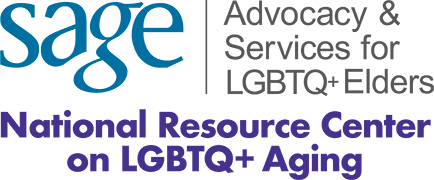Aging with HIV: An Introduction
September 2011 | Dr. James Masten
Dr. Masten, author of the book Aging with HIV: A Gay Man’s Guide, provides his insights into aging positively while living with HIV.
There was a time when the words “aging” and “HIV” would not be used in the same sentence. Now, with improvements in the treatment of HIV, people are living into midlife and older age in increasing numbers. But, what does it mean to “age with HIV?” And how can people who never thought they would live this long adapt to the challenges that accompany aging?
HIV-positive people are charting new territory, and specialists in the field are just beginning to understand the medical, psychological and social implications of aging with HIV. If you are living with HIV, or know someone who is, here are some points to consider.
You Are Not Alone
It is expected that people over age 50 will represent a majority of those infected by the year 2015. Despite the large numbers of people in this age group, people living with HIV in midlife and beyond often feel invisible within both AIDS care agencies and organizations serving older people. Aging can feel like yet another stigma. Knowing that you are not alone and that your concerns matter can empower you to advocate for the care you need.
You Have Unique Concerns
In many respects the challenges people aging with HIV face are no different than those of HIV-negative people. We all have to adapt to changes in our bodies as we age (eyesight, mobility, health, etc.). We have new financial considerations as we grow older, including work-related changes and planning for our futures. We develop new roles in our families. We live through losses among our friends and changes to our social networks. And our attitudes, needs, and desires change within our sex lives and intimate relationships.
But, HIV has a way of reshaping all these areas of life.
Let’s take, for example, the issue of symptom ambiguity. Many people aging with HIV report that it can be difficult to identify whether their symptoms are age-related or HIV-related. The men I interviewed asked, “Is this ache just normal aging, a complication from medication, or a sign of HIV-disease progression?” Unable to answer these questions, many had difficulty formulating a response. Do they just accept it? Make lifestyle changes? Or is medical intervention necessary?
Doctors don’t always know the answer. There is increasing research in this area, and scientists are looking at changes in bone density, cognitive impairment, and cardiac functioning that may be more prevalent among older people with the virus. More research is coming down the pipeline, but you need to stay informed to keep up with the latest developments.
Much like the early days of the epidemic, people living with HIV are at the forefront of a new era. The information your body is giving you is an important part of the equation. Learn as much as you can and partner with your doctor to determine the best course of action for you.
You Deserve Support
The research tells us that having a supportive social network is one of the greatest predictors of well-being in older age, and studies on HIV over fifty confirm this finding. We adapt better to physical changes, loss, and retirement when we have satisfying emotional and practical supports. In addition, we remain more physically active, emotionally stable, and cognitively stimulated when we remain socially active and involved.
For many gay men aging with HIV, this means rebuilding social networks that have been decimated by AIDS. This is not an easy task, practically or emotionally. Optimal aging with HIV involves assessing the goodness-of-fit of your current support systems, maintaining existing social networks, and finding new support to meet your changing needs.
Many of the men I spoke with have used social services agencies as resources to help them rebuild their social support networks. SAGE has programs for midlife and older gay and bisexual men living with HIV in New York City. My blog has a page with HIV and aging resources throughout the country. The National Resource Center on LGBT Aging can also point you to services in your area.
Aging Means Changing
Aging is a gradual process, but it can sneak up on us when we’re not paying attention. Gay men living with HIV have good reason to be caught by surprise—they have spent the past two decades in a battle with the AIDS epidemic. Getting back on track with life means adapting to the physical, social, and psychological changes that accompany aging.
Let’s start conversations across the country that normalize the experience of aging and empower the community to define for themselves what it means to optimally age with HIV.
James Masten, Ph.D., LCSW, is the author of Aging with HIV: A Gay Man’s Guide (Oxford University Press, 2010). He teaches at New York University’s School of Social Work, and has been a clinical research consultant for Yale University School of Medicine, Duke University, and the Medical College of Wisconsin. Dr. Masten has a private practice in psychotherapy in New York City. To find out more about Dr. Masten’s work, visit his Psychology Today listing. To read his blog or purchase his book, visit his site Aging with HIV.
For More Information
HIV/AIDS and Older Adults: Fact Versus Fiction
Too many myths and misconceptions surround HIV and AIDS, particularly for people over 50 living with the disease. Learn the facts about HIV/AIDS and older adults.
HIV/AIDS and Your Rights: A Fact Sheet
People living with HIV/AIDS are entitled to certain protections under federal law. Learn more about your rights.
